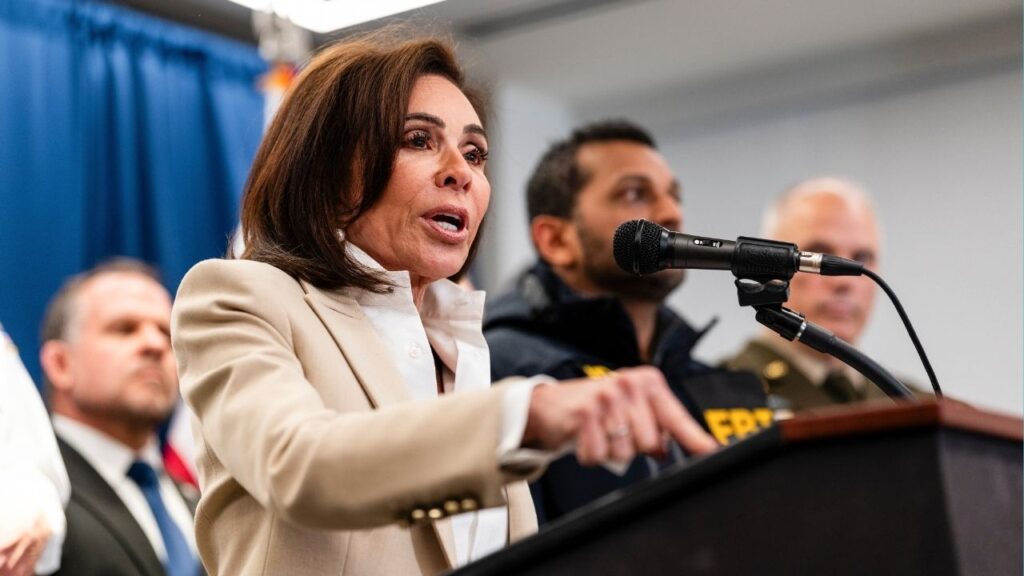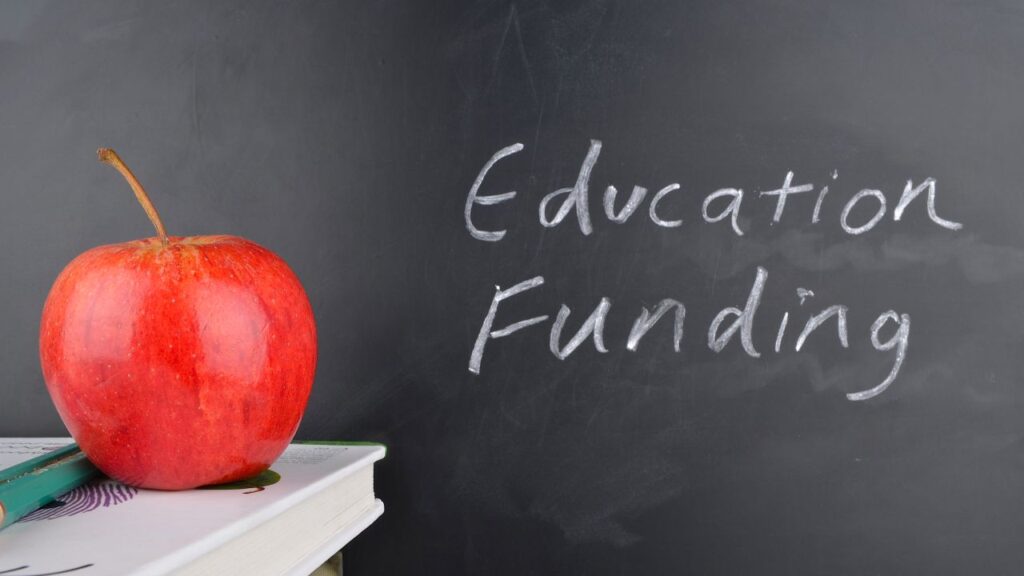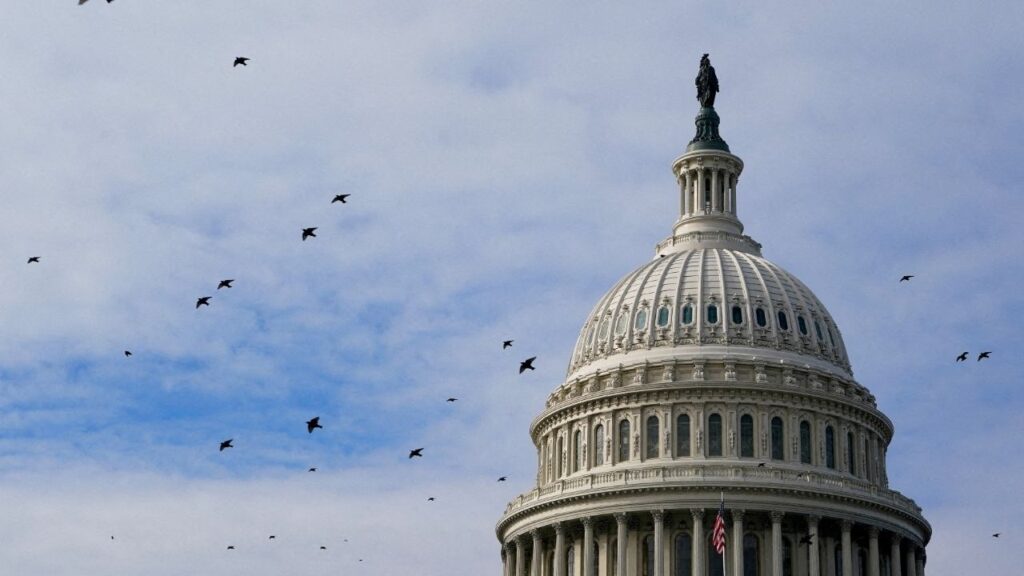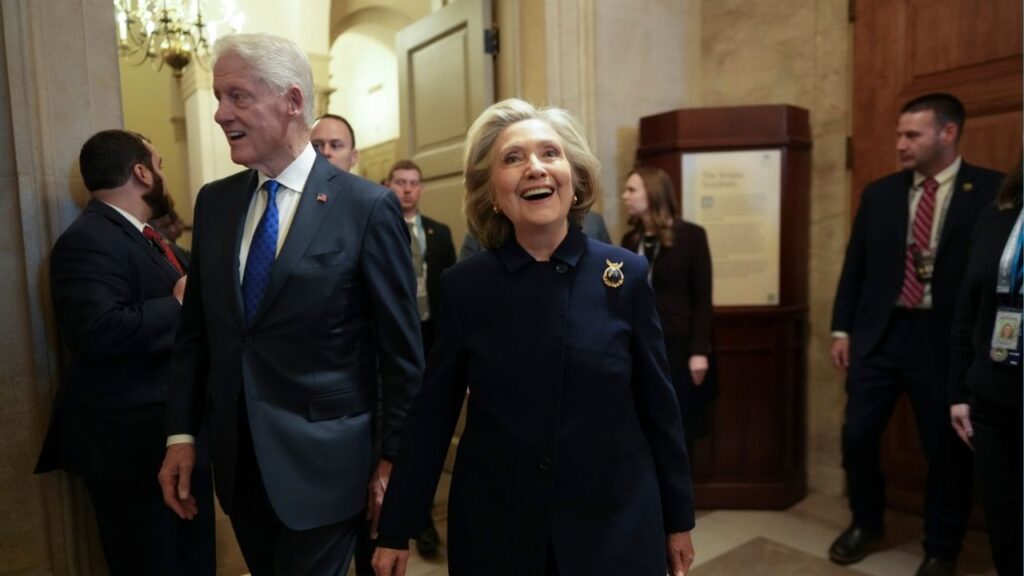Yard signs for political campaigns line a street in Beaver, Pa., Oct. 16, 2024. Partisan polls appear focused on lifting Republican enthusiasm and cementing the idea that former President Donald Trump, the Republican presidential nominee, can lose only in a rigged election. (Jeff Swensen/The New York Times)

- Republican-aligned polls boost Trump’s momentum narrative as the 2024 presidential election nears.
- Betting markets and selective poll inclusion paint Trump as frontrunner, influencing voter perceptions.
- Strategists say these polls aim to prepare Trump supporters for a rigged election claim if he loses.
Share
|
Getting your Trinity Audio player ready...
|
The torrent of polls began arriving just a few weeks ago, one after the other, most showing a victory for former President Donald Trump.
They stood out amid the hundreds of others indicating a dead heat in the presidential election. But they had something in common: They were commissioned by right-leaning groups with a vested interest in promoting Republican strength.
Surveys Had Marginal Impact on Polling Averages
These surveys have had marginal, if any, impact on polling averages, which either do not include the partisan polls or give them little weight. Yet some argue that the real purpose of partisan polls, along with other expectation-setting metrics such as political betting markets, is directed at a different goal entirely: building a narrative of unstoppable momentum for Trump.
The partisan polls appear focused on lifting Republican enthusiasm before the election and — perhaps more important — cementing the idea that the only way Trump can lose to Vice President Kamala Harris is if the election is rigged. Polls promising a Republican victory, the theory runs, could be held up as evidence of cheating if that victory does not come to pass.
“Republicans are clearly strategically putting polling into the information environment to try to create perceptions that Trump is stronger,” said Joshua Dyck, who directs the Center for Public Opinion at the University of Massachusetts at Lowell. “Their incentive is not necessarily to get the answer right.”
Related Story: Trump Says He’ll Protect Women, ‘Like It or Not,’ Evoking His History of ...
In the final stretch of the campaign in 2020, Republican-aligned pollsters released 15 presidential election polls of swing states. In the same period this year, they have released 37, according to a New York Times analysis of data from the polling aggregator FiveThirtyEight. Of those 37, all but seven had Trump in the lead.
That increase comes as the volume of nonpartisan polls — such as those commissioned by major news organizations — have dropped significantly, though they still make up a majority of the polls released. Of the nonpartisan surveys released in the final weeks of this year’s campaign, roughly half showed a lead for Trump.
And that is counting only polls that are explicitly designated as politically aligned by FiveThirtyEight, which sets a high bar for defining partisan polls. There have been additional polls conducted by firms with a history of favoring Republicans or with a public record of pro-Republican rhetoric that have not been designated as partisan by any of the aggregators.
Other factors have also fueled the perception of Trump’s strength. Betting platforms like Polymarket and Kalshi that allow people to place bets on election outcomes have seen a spike in Trump’s favor over the past month — one that does not track with the overall state of the race as captured by reputable polling firms.
French National High-Value Accounts
That surge appears to have been pushed almost entirely by a very small number of high-value bets from just four accounts linked to a French national. Those accounts have collectively placed $30 million on a Trump victory this month.
Trump and his allies, including Elon Musk, have nonetheless promoted the betting markets — although they are opaque, largely unregulated and not a scientific way to gauge public polls. Trump cited Polymarket in a recent speech, saying, “I don’t know what the hell it means, but it means we’re doing pretty well.”
A spokesperson for Polymarket declined to provide comment for this article.
Related Story: Schwarzenegger Endorses Harris, Warns Against Another Trump Term
The trend is a continuation from the 2022 midterms, when a similar stream of Republican-aligned surveys late in the cycle — some conducted by two high school students in Pennsylvania — forecast a “red wave” that would deliver large majorities for Republicans in both the House and the Senate. While nonpartisan polls proved to be quite accurate, the partisan surveys were wrong.
This year, the partisan polls have attracted more public scrutiny, and they have generally tracked closer to other polls. In a race this tight, it is possible that their slight tilt toward Trump will prove to be accurate.
The partisan polls do not appear to be having a significant impact on the polling averages calculated by news organizations, including The New York Times. That is because those groups do not treat all polls equally, and adjust their models to give less weight to surveys from pollsters without reliable track records or with links to a political party. Some polls are excluded from their averages entirely.
Overall, Trump has made slight gains in the national polling average over the past two weeks, and the battleground state polling averages have tightened. Still, the race remains uncommonly close.
That has not stopped these polls from shaping the broader narrative in the race’s final stretch. The averages on the popular aggregation site RealClearPolitics, in particular, are widely cited on social media.
Unlike its competitors, RealClearPolitics does not filter out low-quality polls, incorporating results from pollsters with a poor track record that other aggregators reject. It also does not weight its averages. One of its pages displays a map of the electoral college with a winner projected for each state, even those the site currently deems to be tossups.
That “no tossups” map currently shows Trump winning every single swing state.
RealClearPolitics did not immediately respond to a request for comment.
Related Story: Nicky Jam Withdraws Endorsement of Donald Trump Over Comedian’s ...
Polymarket Shows Trump With High Chance of Winning
Influential accounts have been sharing screenshots of RealClearPolitics’ scarlet-dominated Electoral College map, often paired with images of the Polymarket betting average, which currently shows Trump with a 65% chance of winning.
Two weeks ago, Musk shared the map with his 202 million followers on X, writing that the “trend will continue” and that Democrats are losing. Early voting data, a fickle predictive metric, has also been cited by Trump supporters as further evidence of his impending triumph.
“It’s full spectrum dominance — it’s everywhere you look. You can’t avoid it. It feels good, it looks good, it sounds good,” said Vish Burra, the executive secretary of the New York Young Republican Club.
Related Story: Trump Says He’ll Protect Women, ‘Like It or Not,’ Evoking His History of ...
Simon Rosenberg, a Democratic strategist, is among those who believe Republican-aligned pollsters are “flooding the zone” in order to shift the polling averages and deflate Democrats’ enthusiasm. “It doesn’t have to be by a lot,” he said. “Just enough to turn the map red.”
Rosenberg has hammered the theme for weeks on his Substack and social media accounts, creating what critics describe as a counternarrative that overstates the impact of partisan polls on the overall averages.
Yet even a slight shift in perception could be enough to fuel claims of a stolen election if Trump loses — claims the former president and his supporters have already been teeing up.
“We need to make it TOO BIG TO RIG,” Trump posted on social media Tuesday, an exhortation that some say underscores the real strategy: to make a loss seem mathematically impossible.
“The main reason you float data like that is because you’re trying to convince your supporters there’s no way Trump can lose — unless it’s stolen,” said Mike Madrid, a longtime Republican strategist who is critical of the former president. “The goal is to set the predicate for the race’s aftermath so you can challenge the result.”
–
This article originally appeared in The New York Times.
By Ken Bensinger and Kaleigh Rogers/Jeff Swensen
c. 2024 The New York Times Company
RELATED TOPICS:
Categories

OpenAI’s ChatGPT Down for Thousands, Downdetector Reports


















